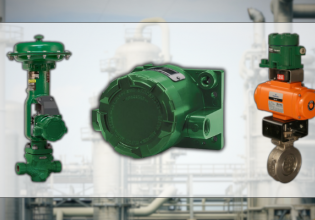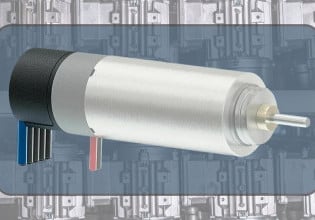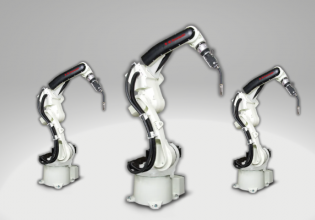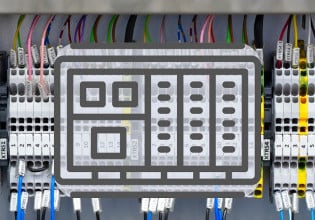ABB Robotics Partners With Start-up To Promote Sustainable, Affordable Housing
In an effort to make housing more sustainable and affordable, ABB Robotics and technology start-up AUAR have teamed up to build an ecosystem of robotic micro-factories.
ABB Robotics is taking another step towards building sustainable, affordable housing through its latest industry partnership with Automated Architecture (AUAR). The duo will promote using robotic micro-factories to construct environmentally conscious, low-energy timber homes. AUAR is an innovative tech start-up based in the United Kingdom.
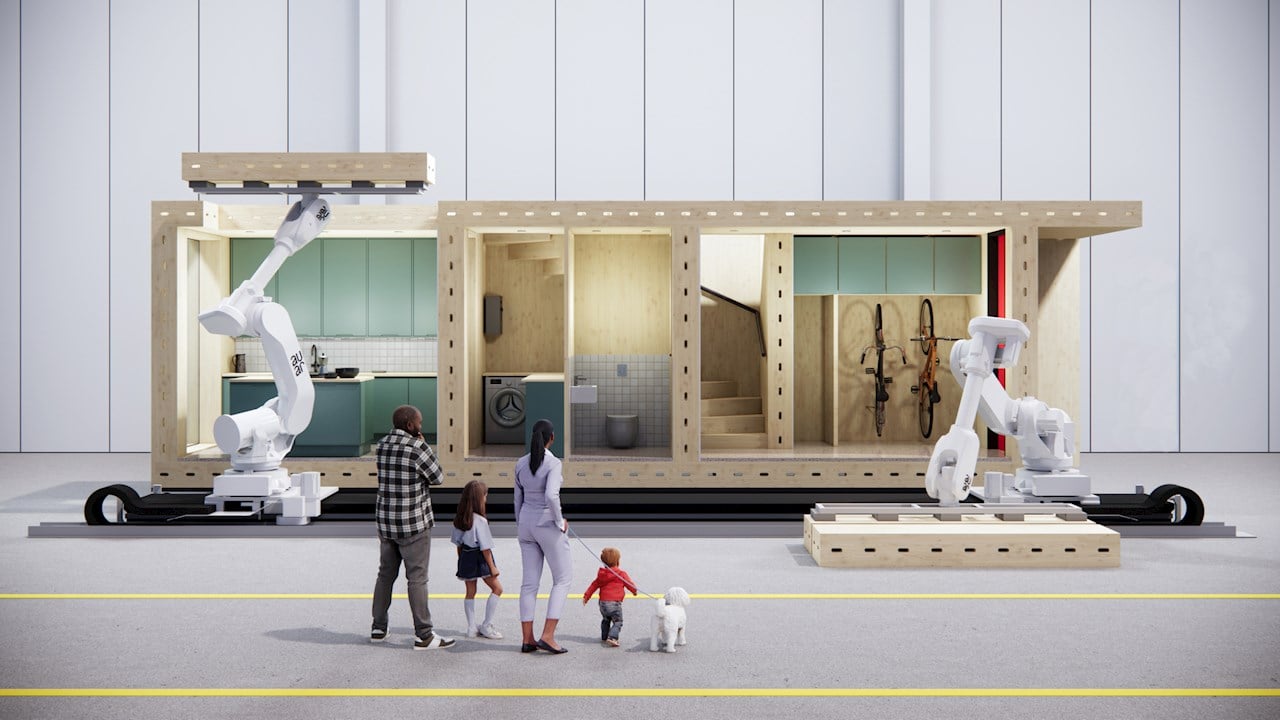
ABB Robotics and AUAR are working to deliver sustainable, modular construction on a local scale. Image used courtesy of ABB
Combating Construction Industry Waste
According to the United States Environmental Protection Agency, the lack of strictly adhered-to sustainable practices within the construction industry led to the production of roughly 600 million tons of construction and demolition (C&D) debris in the U.S. in 2018. Of this, 143 million tons were sent to landfills, and the rest were used for ‘next use,’ such as making new raw materials or products.
As reported by Science Direct, C&D waste comprised 30-40% of the total global solid waste stream in 2022, and the volume of annual construction waste is projected to rise to 2.2 billion tons annually by 2025.
To combat the rise in waste material build and reduce carbon footprints, construction companies and regulatory bodies have brought in and implemented value engineering and lean construction to minimize material use and decrease costs while maintaining high product value. According to The Business Research Company, the C&D waste management market is set to grow $271.68 billion by 2028 at a compound annual growth rate of 7.1%.
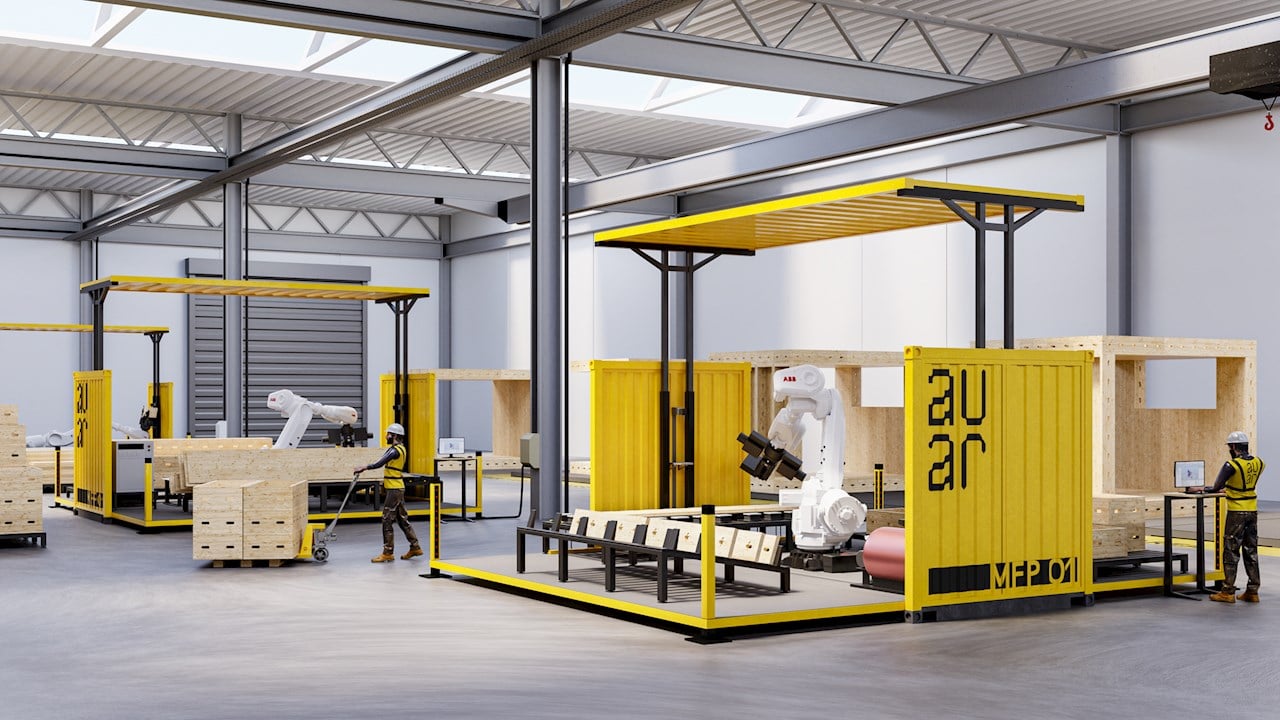
AUAR’s flexible, resource-saving micro-factory approach means that robot cells can be added to meet construction needs. Image used courtesy of ABB
ABB and AUAR Team Up
Following its partnership with Porsche Consulting, ABB is taking another conscious step towards providing affordable housing while also addressing construction industry waste. As with the ABB-Porsche partnership, ABB’s partnership with AUAR focuses on combining robotics and automation with the construction of modular housing. However, AUAR adds to this novel and sustainable mode of producing quality housing with its micro-factory approach.
Micro-factories for a Simplified Supply Chain
The traditional mode of building construction requires numerous materials sourced from different localities across the globe. Two ways of minimizing supply chain disruptions and limiting potential resource scarcity are to manufacture building segments close to construction sites and use minimal construction resources.
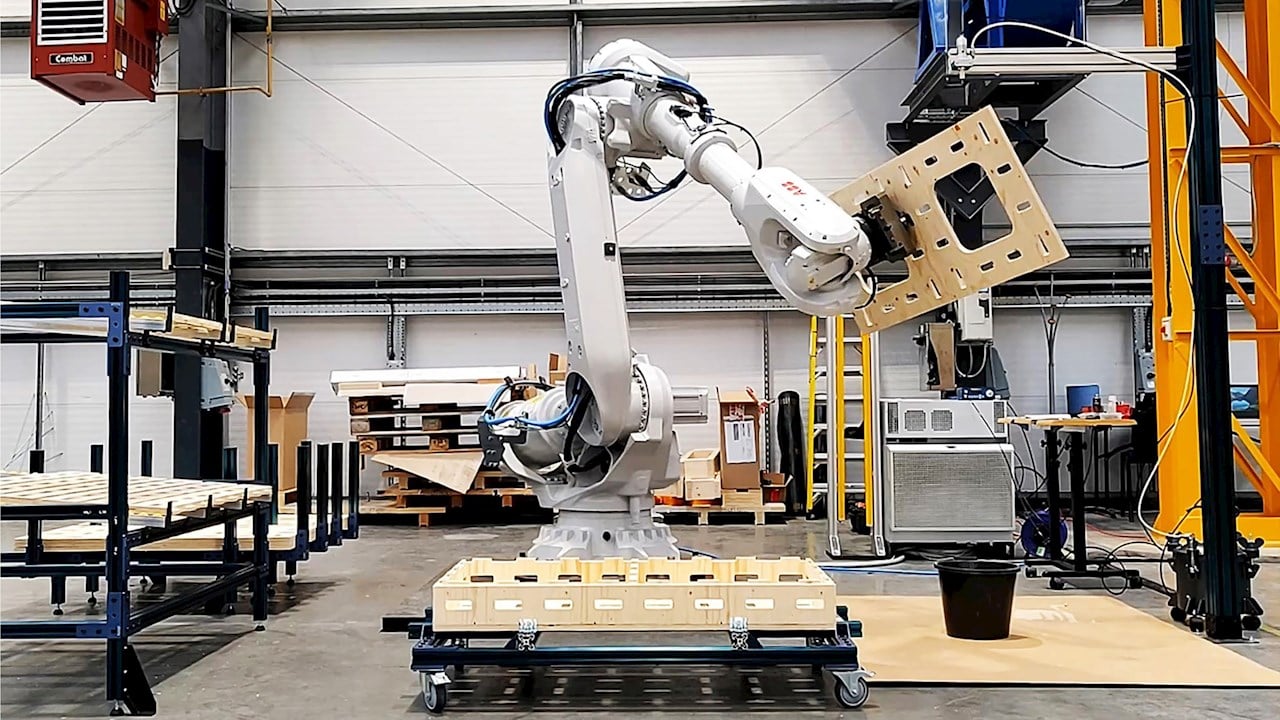
AUAR is focused on developing a “global ecosystem of automated micro-factories” for sustainable and affordable timber-made housing. Image used courtesy of ABB
Essentially, AUAR intends to reduce supply chain complexity by using one type of material and one type of machine for modular building construction. By situating micro-factories close to construction sites, AUAR also seeks to provide more sustainable and affordable automated modular building construction. This generates more job opportunities for local suppliers and contractors and facilitates more efficient coordination of construction operations, as well as speedier sourcing and delivery of materials.
How does it work? A robot cuts sheets of timber into specific components, which are assembled into building units and shipped to the building site. According to ABB, this method means that houses or workspaces can be constructed in weeks rather than months or years. Depending on construction needs, the production of building units can be scaled up or down by adding modular robot cells.


